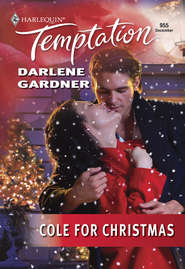По всем вопросам обращайтесь на: info@litportal.ru
(©) 2003-2024.
✖
A Time To Come Home
Автор
Год написания книги
2019
Настройки чтения
Размер шрифта
Высота строк
Поля
She’d almost reached the door when she turned around. “If you ever want to talk about anything—Terry Pratchett books, school, anything—just come find me. I’ll be around.”
Then she left.
Molly frowned, wondering what had possessed her to admit she’d skated out of her last class. How could she be sure Diana wouldn’t rat her out?
Diana had seemed okay. She wasn’t too old and she hadn’t lectured Molly about doing the right thing. But Diana was one of them. An adult.
Molly snorted, disgusted with herself for revealing anything at all to Diana. She put her headphones back on and opened her book, wondering how long it would be until she caught hell for skipping school.
THE APPLE-CHEEKED KID on the stand looked about fifteen years old, although Tyler’s court documents stated his age as nineteen.
Unlucky for the kid.
The juries in adult cases usually came down harder on offenders than juvenile court judges, a bad thing for Grant Livingstone. Because Tyler was about to prove without a reasonable doubt that the teenager had committed arson.
Nobody had died, but the owner of the single-family home that had burned to the ground suffered second-degree burns trying to contain the flames before the fire department arrived.
“I’d like to make sure I have some of the facts straight,” Tyler said, sidling up to the young man. Up close, dressed in a too-big navy blue suit, Grant looked like a boy playing dress-up in his father’s clothes. “Is that okay, Mr. Livingstone?”
“Uh, sure.” The kid clearly wasn’t used to being addressed formally.
“You say the empty gas can police found in your parents’ garage is one you used to fill up the tank of the lawn mower. Is that correct?”
“Yeah,” Grant said, then seemed to remember where he was. “I mean, yes, sir.”
“You also maintain that you were seen in the vicinity of the fire shortly before it started because the house that burned down was along your running route. True?”
“Yes, sir.” The teen straightened and spoke louder, more confidently. “I pass right by that house, I mean where that house used to be, when I go out for a run.”
“How long have you been running that route?”
“Not long. I change my route all the time.”
“I see,” Tyler said.
And he did. Circumstantial evidence had been enough to bring Grant to trial, but not enough to convict him. Without a motive, the odds of the teenager walking free were sky high.
Grant knew that. That’s why he’d refused to plea bargain and why his wealthy father had shelled out big bucks to hire a defense attorney. However, they were unaware of what Tyler knew.
“Mr. Livingstone, do you know a Dr. Millicent Osgood?”
Shock flashed across the kid’s face, which he quickly masked. But Tyler had seen it and knew the case was as good as won.
“Objection,” Grant’s defense attorney called, clearly not recognizing the name. “Irrelevant.”
Tyler glanced back at the young lawyer, a junior associate at a legal firm that counted one of Tyler’s neighbors as a partner.
The attorney had mounted a fairly impressive defense but erred when he let Livingstone take the stand. The law didn’t require defendants to testify, a marked advantage if your client was guilty. A prosecutor who’d done his homework could almost always get a guilty man to incriminate himself. The younger the defendant, Tyler found, the more likely he was to slip up.
All of which meant that the very young lawyer from Ernst, Cooper and Pettinger must actually believe his even younger client wasn’t guilty.
“If the court will bear with me,” Tyler told the judge, a statuesque woman in her sixties. “I’ll show how Dr. Osgood relates to this case.”
“Overruled,” the judge said. “The defendant will answer the question.”
“Dr. Osgood was my twelfth-grade biology teacher at Bentonsville High.”
Tyler waited a moment for that fact to sink in with the jury. “Mr. Livingstone, do you have a high school diploma?”
Grant squirmed in his seat. “No.”
“Why not? You were supposed to graduate with your high school class last year, weren’t you?”
“I, uh, didn’t pass all my subjects.”
“Isn’t it true that the subject you flunked was biology and Dr. Osgood was the teacher who flunked you?”
The pause before Grant answered stretched longer than before. “Yeah.”
“Where do you go to school now, Mr. Livingstone?”
“Rockville Prep.”
“If not for that grade in biology, you’d be in college, correct?”
“Objection, Your Honor,” the defense attorney interrupted, not without a touch of panic. “I fail to see how any of this is relevant.”
Before the judge could rule, Tyler said, “I’d like to submit a phone book into evidence, Your Honor. It goes directly to relevance.”
“Don’t try my patience, counselor,” the judge told Tyler. “Connect the dots in the next minute or you’ll have to move on from this line of questioning.”
“Understood.” Tyler strode to the prosecutor’s table and picked up the community phone book he’d placed there. While walking back to Grant, he flipped it open to a bookmarked page, then handed it to the defendant.
“Mr. Livingstone, would you please read the address listed next to Dr. Millicent Osgood’s phone number?”
The kid reminded him of a caged animal, his eyes frantically searching for a means of escape. After a moment, he cleared his throat and read, “9926 Fairmont Road.”
“Do you know the address of the place that burned down?” Tyler asked.
“No, I don’t,” Grant said, but his eyes and his manner said otherwise.
“Let the record show that address is 9962 Fairmont Road.”
Tyler didn’t relish the gasps and shocked murmurs that reverberated throughout the courtroom. Despite the arrogance that shined through in his manner, Grant seemed more like a misguided kid than a bad one. He’d set the fire in a trash can, probably only intending to frighten. But the wind had been gusty that day, spreading the flames to the branches of a nearby tree that butted up against the house. The resulting inferno had happened very fast.
Tyler spent a good chunk of time trying to get Grant to admit to arson, with no success. But by the time the judge adjourned for lunch, the damage was done. Tyler had furnished the jury with a motive and a defendant who couldn’t meet his eyes when he lied.
The defense attorney would probably spend the lunch break talking to his client about trying to make a deal, but it was too late for that now that Tyler had the case won. Tyler’s boss, the state’s attorney, took pride in his office’s high conviction rate and would never approve a plea bargain at this late stage.











